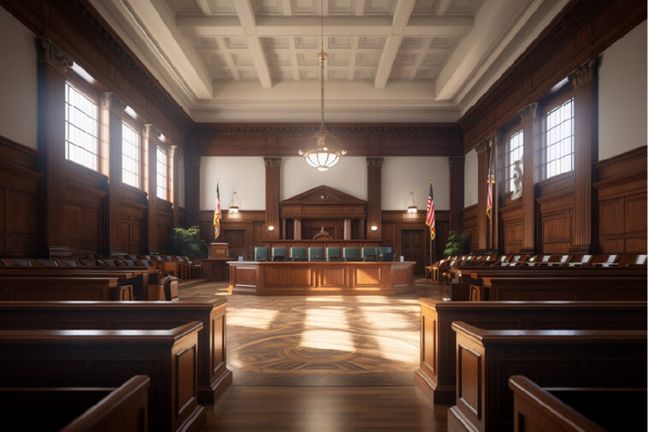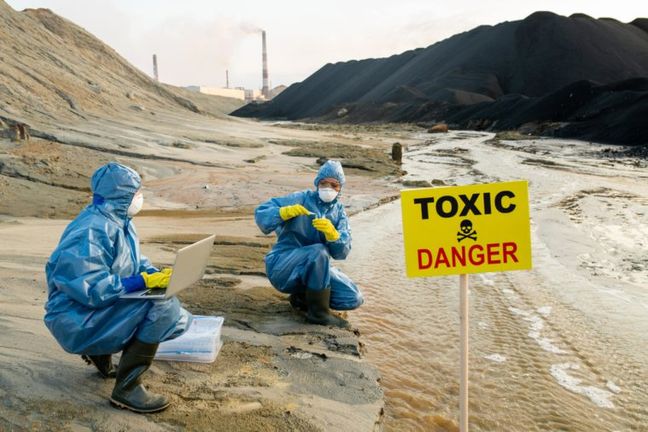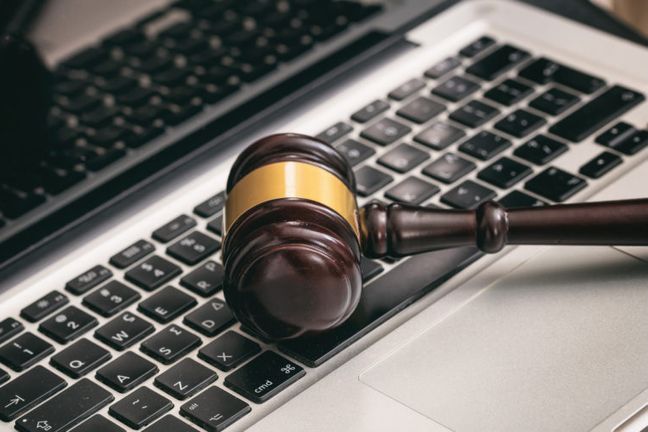Introduction
In deciding Yamashita v. LG Chem, Ltd.[1] the Ninth Circuit has offered guidance as to specific personal jurisdiction in products liability cases in light of the Supreme Court’s own recent decision in Ford Motor Co. v. Montana Eighth Jud. Dist. Ct.[2] In Ford, the Supreme Court held the exercise of specific personal jurisdiction to be proper in the circumstance where, while the particular item involved in an accident was not sold in the forum state, the defendant nonetheless advertised, sold, and serviced the same model of product at issue in the forum state.[3] In Yamashita, a Ninth Circuit panel consisting of Circuit Judges O’Scannlain, Miller, and Lee, in an unanimous decision authored by Judge O’Scannlain, declined to extend the Ford holding to the facts before it. [4]
Facts
The plaintiff in Yamashita was a resident of Hawaii who was using an electronic cigarette powered by a battery when both the battery and the electronic cigarette itself exploded in his mouth. He alleged the battery had been designed, manufactured, and distributed by LC Chem, Ltd. (“LGC”), a South Korean company headquartered in Seoul, and its wholly owned subsidiary LG Chem America, Inc. (“LGCA”), a Delaware corporation with its principal place of business in Georgia.[5] He further alleged he “…purchased the battery from an unidentified third party to whom LGC and LGCA had somehow distributed it for resale in Hawaii.”[6]
The plaintiff sued both LGC and LGCA in Hawaii state court, and after removal to the District Court for Hawaii both defendants moved to dismiss for lack of personal jurisdiction.[7] After the trial court denied his motion for jurisdictional discovery and granted defendants’ motion to dismiss, the plaintiff appealed.[8]
As for the facts considered by Yamashita relating to LGC and LGCA contacts with Hawaii for jurisdictional purposes, the specific model of battery at issue was called the 18650 lithium-ion battery, and was described as being similar to a somewhat-larger AA cell.[9] LGC sells 18650 batteries to manufacturers for use in consumer products but denied distributing, advertising, or selling them directly to consumers as stand-alone batteries.[10] While LGCA resells and distributes LGC products including 18650 batteries, it similarly denied distributing them directly to consumers.[11]
The Court in Yamashita considered the specific contacts of both LGC and LGCA with Hawaii, which it described as falling “into four broad categories.”[12] These were (1) the shipment by both firms of products through the port of Honolulu, including shipments intended for destinations in Hawaii, but without indication of shipment of 18650 batteries, (2) the significant sale by LGC of residential solar batteries in Hawaii, (3) the presence in Hawaii of various consumer products in Hawaii containing 18650 batteries manufactured by LGC, but with no indication any of these batteries were every brought into Hawaii by LGC or LGCA, and (4) a third-party website sells standalone 18650 batteries manufactured by LGC, but with no indication as to where this third-party acquires these batteries.[13]
Reasoning
The Court near-summarily rejected the plaintiff’s argument as to general personal jurisdiction, and proceeded to discuss specific personal jurisdiction in light of Ford.[14] Of note, the Yamashita Court explicitly held the standard for specific personal jurisdiction in the Ninth Circuit as to consumer products remains the “stream-of-commerce-plus” test, under which “the placement of a product into the stream of commerce, without more, is not an act purposefully directed toward a forum state, even if the defendant is aware that the stream of commerce may or will sweep the product into the forum state.”[15]
With this standard in mind, the Court in Yamashita concluded LGC and LGCA’s shipment of products through the port of Honolulu and LGC involvement with solar batteries do count as purposeful availment for specific jurisdiction purposes by both, as the defendants relied on the laws of Hawaii to conduct business operations.[16] Conversely, the Court also concluded consumer products containing the 18650 battery brought into Hawaii by others, and the third-party website, do not so count—they represented no purposeful availment of Hawaii on the part of the defendants.[17]
Yet the conclusion of Yamashita’s specific jurisdiction analysis proved fatal to the plaintiff, as it determined, applying Ford, that the harm alleged did not arise out of either of the two identified forum contacts.[18] Specifically, there was no but-for causation, as there was no indication 18650 batteries were ever part of the defendants’ shipment of products through the port of Honolulu, and LG’s solar batteries were totally unrelated to the injury at issue.[19] Unlike the situation in Ford, where the defendant had extensively marketed and sold the model of car at issue in the forum state, there was no corresponding evidence with respect to the batteries at issue in Yamashita.[20]
Yamashita concluded by affirming the lower court’s denial of leave for the plaintiff to conduct jurisdictional discovery.[21] After explaining how under the relevant jurisdictional standard the bulk of the discovery materials requested by the plaintiff were irrelevant, Yamashita did posit that evidence that LGC or LGCA did in fact sell 18650 as standalone batteries in Hawaii would establish purposeful availment and relatedness to the plaintiff’s injuries.[22] The court concluded, however, given the defendants’ sworn declarations to the contrary, it was not an abuse of discretion for the district court to deny leave to conduct this discovery.[23]
Implications and Takeaways
Yamashita establishes and affirms the continued viability of the “stream-of-commerce-plus” test in the Ninth Circuit, and further offers guidance as to the applicability of Ford. Out-of-forum products liability defendants in the Ninth Circuit should therefore carefully analyze their forum contacts, and their relationship to the injury alleged, prior to potentially waiving personal jurisdiction defenses.
Keep Reading
More by this author
Sources
[1] Yamashita v. LG Chem, Ltd., 62 F.4th 496 (9th Cir. March 6, 2023).
[2] Ford Motor Co. v. Montana Eighth Jud. Dist. Ct., 141 S. Ct. 1017 (2021)
[3] Id. at 1022.
[4] Yamashita, 62 F.4th at 508–09.
[5] Id. at 501.
[6] Id.
[7] Id. at 502
[8] Id.
[9] Id. at 501.
[10] Id.
[11] Id.
[12] Id.
[13] Id. at 501–502.
[14] Id. at 503, noting if the plaintiff’s arguments as to general jurisdiction were accepted, “most international firms selling into the U.S. market would be at home in most U.S. states, despite being neither incorporated nor headquartered in any of them.”
[15] Id. at 504, quoting Holland Am. Line Inc. v. Wärtsilä N. Am., Inc., 485 F.3d 450, 459 (9th Cir. 2007) (cleaned up); see also Yamashita, 62 F.4th at 504, discussing J. McIntyre Machinery, Ltd. v. Nicastro, 564 U.S. 873 (2011).
[16] Yamashita, 62 F.4th at 504.
[17] Id.
[18] Id. at 504–07.
[19] Id. at 506.
[20] Id. at 506–07.
[21] Id. at 507–09.
[22] Id. at 508.
[23] Id. at 508–09.

 Author: Mitchell B. Malachowski
Author: Mitchell B. Malachowski
 Editor: Ashley Paige Fetyko
Editor: Ashley Paige Fetyko
 Cannabis Workers Allege Quota to Trim 4 Pounds a Day Violates the California Labor Code
Cannabis Workers Allege Quota to Trim 4 Pounds a Day Violates the California Labor Code
 The Ninth Circuit Reminds Us: Every Word Matters
The Ninth Circuit Reminds Us: Every Word Matters
 NO WAY, PRO SE! The Consequences of Abusing the Judicial System as a Pro Se Litigant in Colorado
NO WAY, PRO SE! The Consequences of Abusing the Judicial System as a Pro Se Litigant in Colorado
 Victim of Financial Mismanagement or Unlawful Retaliation? New Jersey City University Program Founder Claims School Retaliated After Reporting Alleged Sexual Harassment
Victim of Financial Mismanagement or Unlawful Retaliation? New Jersey City University Program Founder Claims School Retaliated After Reporting Alleged Sexual Harassment
 “Real Housewives” Gets a Reality Check
“Real Housewives” Gets a Reality Check
 Missing a Chapter: Insufficiency of Expert Deposition Testimony in Medical Malpractice Litigation
Missing a Chapter: Insufficiency of Expert Deposition Testimony in Medical Malpractice Litigation
 Crash Course: Why Summary Judgment Misses the Mark in Illinois Multi-Cause Limousine Crash Collision
Crash Course: Why Summary Judgment Misses the Mark in Illinois Multi-Cause Limousine Crash Collision
 Bitter Truths: Lead, Cadmium, and Defective Pleadings in California Chocolate Class Action
Bitter Truths: Lead, Cadmium, and Defective Pleadings in California Chocolate Class Action
 The Law of Unintended Consequences: Including Insurance Brokers in Litigation Strategy Communication May Waive the Attorney-Client Privilege
The Law of Unintended Consequences: Including Insurance Brokers in Litigation Strategy Communication May Waive the Attorney-Client Privilege
 Ninth Circuit Decides Novel Question of Personal Jurisdiction in E-Commerce Cases
Ninth Circuit Decides Novel Question of Personal Jurisdiction in E-Commerce Cases
 US Supreme Court Creates Potential for Vast Expansion of General Personal Jurisdiction
US Supreme Court Creates Potential for Vast Expansion of General Personal Jurisdiction
 Texas Two-Step Trips on Third Circuit Dance Floor
Texas Two-Step Trips on Third Circuit Dance Floor
 Ninth Circuit Greenlights Insurer Intervention on Behalf of Defunct Insureds
Ninth Circuit Greenlights Insurer Intervention on Behalf of Defunct Insureds
 Keep It Moving: Can Defense Attorneys Use Venue Selection to Their Benefit?
Keep It Moving: Can Defense Attorneys Use Venue Selection to Their Benefit?